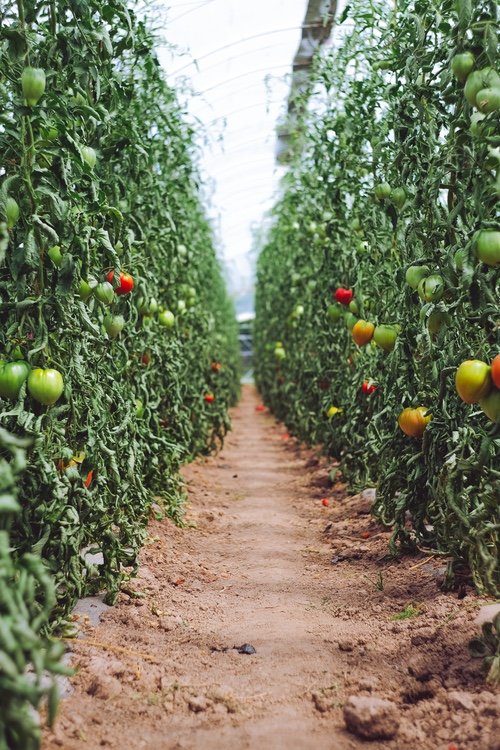The other day @marlon6 had an excellent post about "Agricultural Land ranking by country - A fundamental statistic".
At the end of his observations, he asked "I think it would be positive to improve those percentages all over the world. Any idea how?"
By which he meant that we should increase the amount of the land given over to agricultural output on a country-by-country basis.

I currently live in the country ranked 16th on the list from worldbank.org.
| Agricultural land (% land area) | % |
|---|---|
 URUGUAY URUGUAY | 82.6% |
 SOUTH AFRICA SOUTH AFRICA | 79.8% |
 NIGERIA NIGERIA | 77.7% |
 MONGOLIA MONGOLIA | 72.7% |
 UKRAINE UKRAINE | 71.3% |
 GREAT BRITAIN GREAT BRITAIN | 70.8% |
 INDIA INDIA | 60.4% |
 CHINA CHINA | 56.2% |
 TURKEY TURKEY | 50.1% |
 GERMANY GERMANY | 47.9% |
 PAKISTAN PAKISTAN | 40.7% |
 USA USA | 44.4% |
 PHILIPPINES PHILIPPINES | 41.7% |
 BRASIL BRASIL | 33.8% |
 RUSSIA RUSSIA | 13.3% |
 CANADA CANADA | 6.9% |
 EGYPT EGYPT | 3.8% |
This chart is not clear about what humanity's goal should be for land use.
Feeding the world is, of course, a noble goal, and well worth pursuing.
It raises the question: should it be pursued blindly without regard to other human values?
I don't think so.
Here in Canada, for example, you might be surprised to hear that we have actively and deliberately reduced land under agricultural use!
For example, we have deliberately turned tracts of low-yield land into nature preserves.
Automation in agriculture has meant that we are increasingly doing more with less.
Which turns into feeding more people with fewer acres under production.
Additionally, greenhouses allow us to produce much more on a much smaller ecological footprint.
Crops can be grown 2-6 times per year, compared to only once a year without a cover.
This leads to the ability to have a population that receives much better food variety and nutrition for lower costs.
Companies like TruLeaf continually improve how much we can grow within shrinking footprints.
This move to making agriculture more efficient has a long and storied history.
From better plows and irrigation to cross-breeding and modern techniques of genetic manipulation, humans have been improving agriculture for a long time.
With artificial intelligence, GPS, and satellite tracking of growth rates, we're on the cusp of even more changes in the decade or two to come.
Some of the changes are scary.
Others are exciting.
Can we solve homelessness on a global scale?
Can every person on the planet own a place to live that helps them become the best they can be?
Can we create areas that preserve the wonder, grandeur and variety of nature for generations to come?
Certainly not if we use every available piece of land just to feed ourselves.
Considering all the different purposes land could be used for, what would your highest value be?
Photo by Markus Spiske on Unsplash.
It looks like we think about similar things @wrashi and I'd be curious to know if you are in the same age bracket as me, or if you are younger.
Thanks for writing... I enjoy reading your posts 😊
Downvoting a post can decrease pending rewards and make it less visible. Common reasons:
Submit
Thanks for the reply, @chrisrice. I'm glad to hear that you like some of the things I'm interested in, too! I'd guess from your picture that you're definitely younger than I am. Then again, Asians always look a lot younger to me than I think they are.
Downvoting a post can decrease pending rewards and make it less visible. Common reasons:
Submit
Ah okay @wrashi.
Yeah, I wasn't sure since you don't have a profile picture uploaded. I was reading somewhere that younger generations are more conscious of society and the poor since in general, they have less money and less assets than the Baby Boomer generation. That lead me to wonder if you were my age.
I am 33 years old 😊
Downvoting a post can decrease pending rewards and make it less visible. Common reasons:
Submit